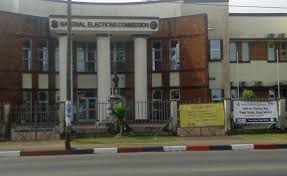By our Staff Writer
A work plan released in Monrovia on Friday by the National Elections Commission (NEC) and the ECOWAS Technical Team says there will be “full clean-up of the Final (voter) Registration Roll (FRR) to ensure that multiple names of identification number are removed.”
Both sides resolved on the work plan for the implementation of the Supreme Court ruling, which they released at a meeting with the Unity Party (UP) and the Coalition for Democratic Change (CDC) at the headquarters of NEC also attended by the media and election observers.
Before Friday’s meeting, the ruling UP had on Thursday filed a Bill of Information with the Supreme Court asking for a stay order to be placed on the December 26 runoff. The UP is also demanding the resignation or sacking of the Chairman of NEC claiming he is not neutral and cannot preside over the holding of credible elections.
In their Bill of Information to the high Court, UP is arguing that the NEC has failed to clean-up the FFR as ordered by the Supreme Court, among other things.
According to the NEC and ECOWAS Technical Team’s work plan, the clean-up of the FRR entails “the removal of multiple voter IDs in the FRR and the further de-duplication of the FRR.”
It says there are 998 voters affected by the multiplicity of voter IDs –sharing 488 voter IDs.
The solution proposed is to retain existing voter IDs for 488 voters (the fires voter that registered with an ID retains the voter ID and issue new IDs for the remaining 510 voters.
“A new voter card will be created for each of these 510 voters and would be exchanged for old voter cards at polling places on or before the election day,” the document says.
“It is important to state clearly that the multiple IDs in the FFR belong to entirely different persons, therefore this is not a case of multiple registration,” the NEC and ECOWAS Technical Team work plan noted.
At the end of the clean-up process, the work plan says, “a list of affected voters, with their old voter IDs and newly generated Voter IDs would be created and shared with the political parties.”
They further explained that before the FRR was first published In September 2017, NEC had removed 4,567 multiple registrations from the voter roll.
“However, with the decision of the Supreme Court to conduct a full clean-up of the FRR, it was agreed that the FRR should be further checked for multiple registrations,” the work plan says.
The NEC and ECOWAS Technical Team have meanwhile promised the political parties that at the end of their assignment ä list of the suspected multiples, the records removed and those retained will be generated and shared with the political parties.”
Other task outlined in the work plan are publication and printing of the FRR and distribution of hard copies to all Election Magistrates and polling places; limiting the eligibility to vote to only those on the FRR, among other things.

